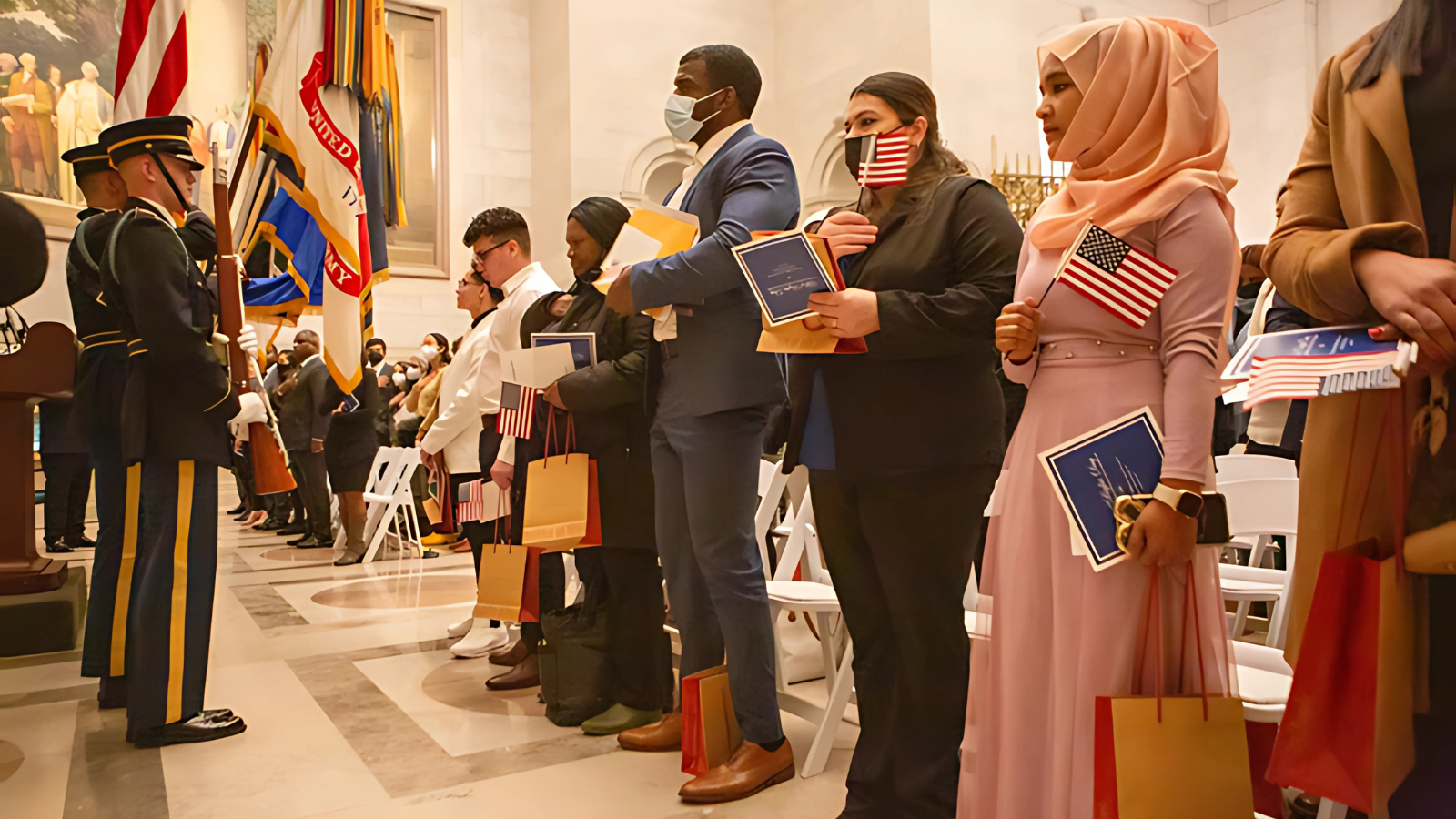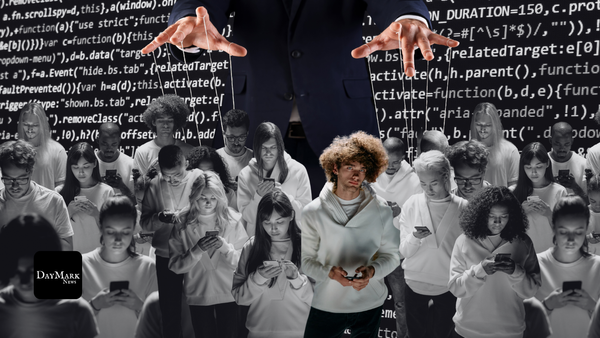Stripping Citizenship: How Trump's Denaturalization Efforts Threaten Even Law-Abiding Americans
Denaturalization—the process of revoking U.S. citizenship—has historically been a rare and exceptional measure, used against war criminals or individuals who committed fraud to gain citizenship.

Denaturalization—the process of revoking U.S. citizenship—has historically been a rare and exceptional measure, used against war criminals or individuals who committed fraud to gain citizenship. However, under the Trump administration, it became a more prominent aspect of immigration policy, raising concerns about its potential to impact even law-abiding naturalized citizens.
From Rare Measure to Prominent Policy
In February 2020, the Department of Justice (DOJ) announced the formation of a Denaturalization Section within its Office of Immigration Litigation. According to the DOJ’s press release, the section aimed to focus on individuals involved in fraud or terrorism. While the stated rationale seemed clear, a Washington Post investigation revealed that as early as 2018, the Trump administration had initiated reviews of thousands of naturalization records for potential discrepancies, signaling a more aggressive approach.
Immigration attorneys expressed alarm over the sweeping scope of these reviews. “The expansion of denaturalization cases creates a chilling effect,” said Sara Evans, an immigration attorney, in an Immigration Daily interview. Evans noted that even long-standing citizens began to fear their status could be revoked, undermining their confidence in the permanence of citizenship.
This fear was echoed in a 2020 report by the American Bar Association, where constitutional law professor Michael Hernandez highlighted that even minor clerical errors could become grounds for investigation. “When naturalized citizenship starts to feel conditional,” Hernandez said, “it erodes trust in the system and creates an environment of insecurity for millions.”
The Human Impact of Denaturalization
Denaturalization’s impact is deeply personal and often devastating. Advocacy organizations, such as the National Immigration Law Center, have reported cases where individuals faced scrutiny over decades-old discrepancies in their paperwork. One notable example is Maria Gonzalez*, a nurse who became a U.S. citizen in 1995. In 2021, she learned her citizenship was under review due to alleged inconsistencies.
“I’ve worked, raised my kids, and contributed to my community for over 25 years. Now I’m scared I’ll lose everything,” Gonzalez said in a statement shared by the Immigration Justice Center. Her story underscores how even minor errors, often unintentional, can upend lives—particularly for immigrants from marginalized backgrounds.
Project 2025: A New Frontier?
Looking to the future, some analysts warn that denaturalization policies could be expanded under a potential second Trump administration. According to a New York Times report, Project 2025—a policy framework developed by conservative think tanks—includes recommendations to intensify denaturalization efforts. Stephen Miller, a key Trump advisor, is said to be a prominent advocate for these policies.
Critics argue that such measures risk creating a two-tiered system of citizenship. “The danger lies in the precedent,” Hernandez said during a Brookings Institution panel discussion on immigration policy. He warned that revoking citizenship long after it has been granted could undermine trust in the naturalization process and create lasting divisions.
Legal and Ethical Concerns
Denaturalization cases require judicial review and evidence, but advocacy groups caution that broadening the scope of these cases could lead to misuse. The American Immigration Council has argued in its 2020 policy briefs that focusing on minor paperwork errors disproportionately affects immigrants from certain racial or ethnic backgrounds, violating principles of fairness and equality.
“Naturalized citizens are essential to our nation’s fabric,” said Asha Patel, director of the Immigration Justice Center, during a webinar hosted by the Migration Policy Institute. Patel stressed that treating naturalized citizens as second-class erodes democracy and weakens the collective trust that binds society.
The Broader Implications
The societal effects of denaturalization are profound. Legal scholars cited in a Harvard Law Review article warned of a slippery slope, where long-standing citizens might face undue scrutiny. Such policies, they argue, could foster fear and division, undermining the foundational ideals of American democracy.
“Citizenship is not just a legal status—it’s a promise,” Hernandez said during the Brookings panel. “When we start unraveling that promise, we risk unraveling the nation’s social fabric.”
Conclusion
Denaturalization, once a rare and extraordinary measure, is becoming alarmingly routine. While addressing fraud and misconduct is essential, critics emphasize that denaturalization must remain a last resort. As the U.S. navigates the future of this practice, it is crucial to safeguard the inclusivity and integrity of American democracy.
*Name changed to protect privacy.
At DayMark News, we are committed to exposing the rise of authoritarianism and its threat to democracy. In a time when disinformation spreads like wildfire and democratic institutions face relentless attacks, we need your support to keep the fight alive.
Investigative journalism is our weapon against authoritarian ideologies. We delve deep to uncover the truths others would rather keep hidden, while providing actionable resources to empower individuals like you to defend our democracy.
We believe in transparency, integrity, and the power of a well-informed public. But maintaining a platform dedicated to fearless reporting and mobilization requires resources. We refuse to bow to corporate interests or compromise our mission. That's why we turn to you — our community.
Every donation, big or small, helps us continue our work. With your support, we can produce the in-depth analyses, breaking news, and educational tools needed to resist the rise of extremist movements and protect democratic values for future generations.
This fight belongs to all of us. Together, we can ensure that democracy not only survives but thrives. Please consider making a contribution today to keep DayMark News strong and independent.
Donate Now: Because Democracy Can't Defend Itself.
Sources:
- Department of Justice: Official press release announcing the creation of the Denaturalization Section (2020).
- The Washington Post: Reporting on the review of thousands of naturalization records initiated in 2018.
- Immigration Daily: Interview with immigration attorney Sara Evans on the chilling effects of denaturalization policies.
- American Bar Association: Report on legal and constitutional concerns surrounding denaturalization.
- New York Times: Coverage of Project 2025 and its potential impact on immigration policies.
- Brookings Institution: Panel discussion featuring Michael Hernandez on the risks of expanded denaturalization.
- American Immigration Council: Policy briefs addressing the disproportionate impact of denaturalization on marginalized communities.
- Migration Policy Institute: Webinar featuring Asha Patel on the implications of treating naturalized citizens differently.
- Harvard Law Review: Analysis of the societal and legal consequences of denaturalization.





